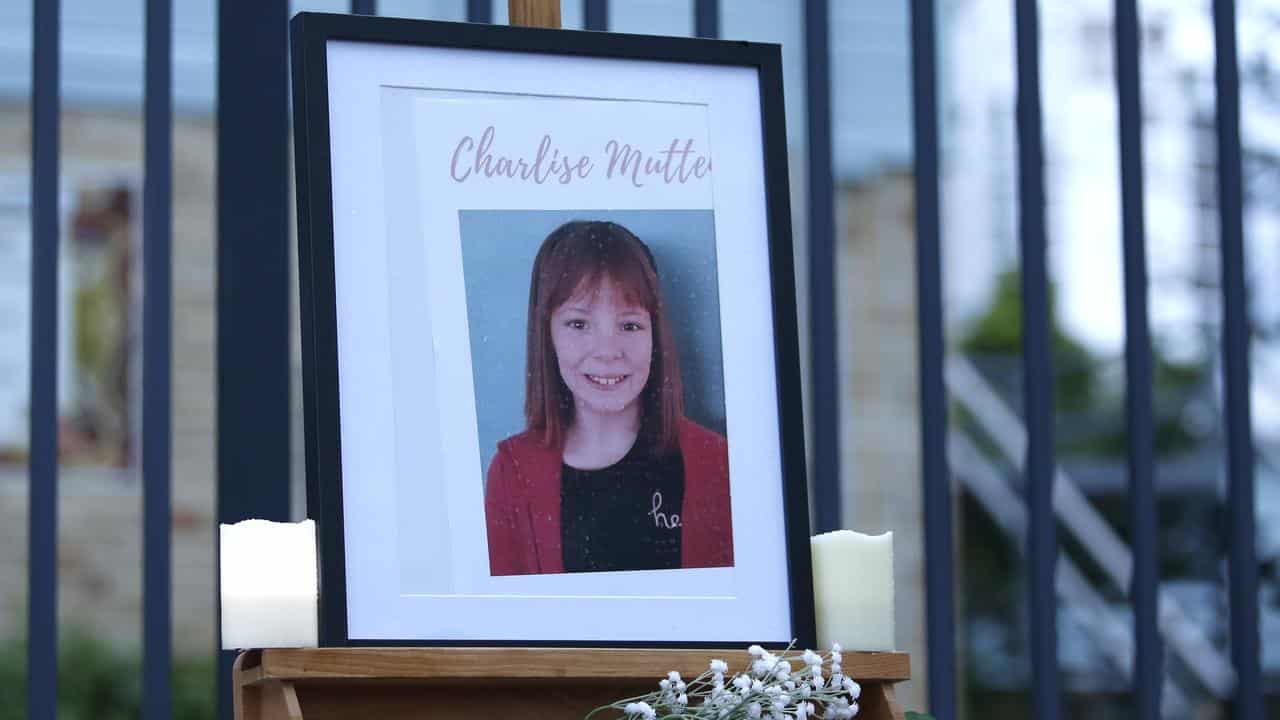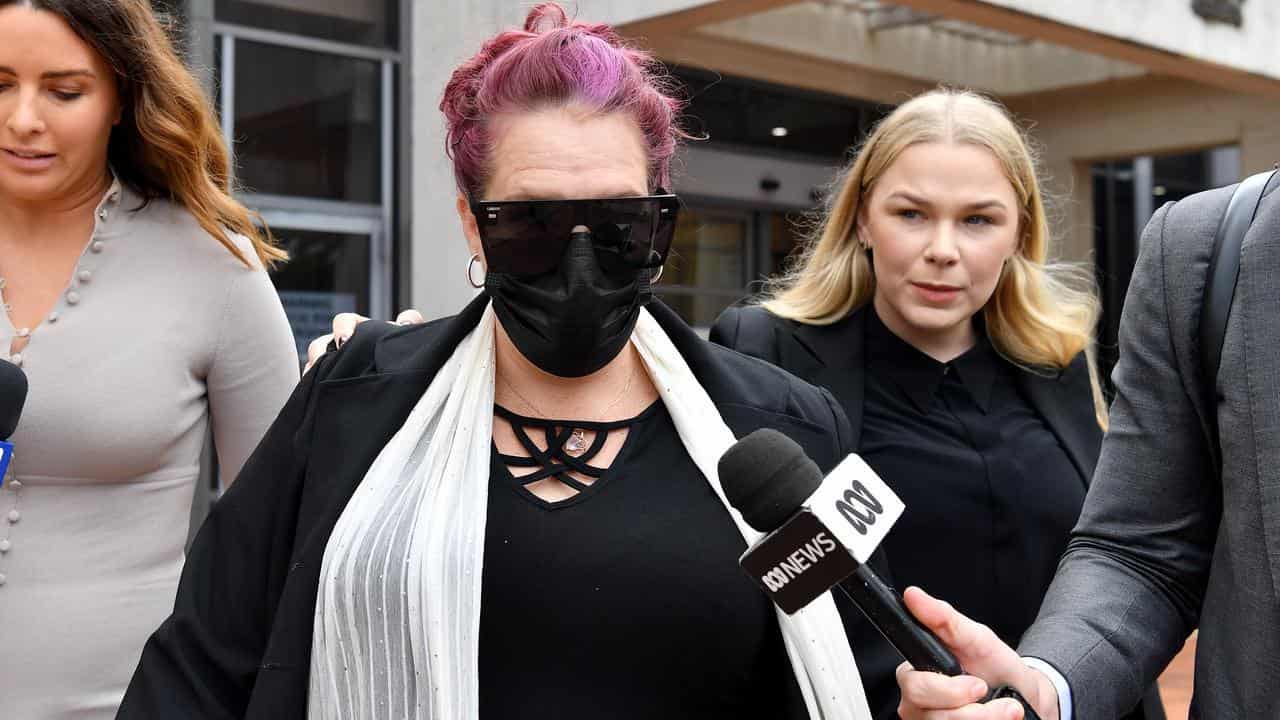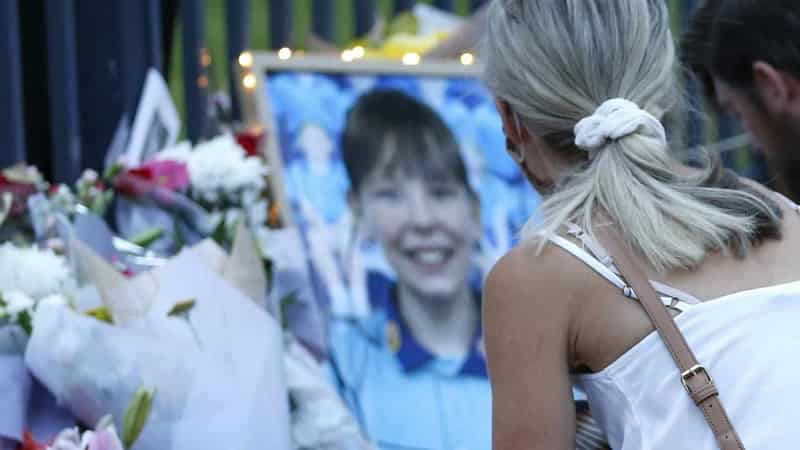
Schoolgirl Charlise Mutten was likely still alive when shot once in the back, before fatally in the head, a murder trial has been told.
The nine-year-old had traces of a heavy-duty medication in her system which can cause severe drowsiness and disorientation in children, toxicology results revealed.
Justin Stein, 33, has pleaded not guilty to murdering the nine-year-old in January 2022 as he stands trial in the NSW Supreme Court.
Charlise's body was found dumped in a barrel by the Colo River, northwest of Sydney, four days after she was reported missing by her mother Kallista Mutten.
She had been staying at a nearby property with Stein and her mother at Mount Wilson, in the Blue Mountains, at the time of her disappearance.

Forensic pathologist Dr Marna Du Plessis told the court on Thursday it was possible the girl was shot first in the back and then afterwards in the face at close range - although decomposition made the exact range difficult to determine.
Charlise was shot from behind in the pelvis area and again in the face under the right cheek bone, from “right to left, front to back, and upwards,” according to part of an autopsy report read to the jury.
Hemorrhaging suggested she was still alive when she suffered the gunshot to her back, the court was told.
Forensic testing of Charlise's remains showed the presence of anti-psychotic drug, quetiapine, for which Stein had a prescription to treat schizophrenia.
The most common side effects of a child ingesting quetiapine are sedation or drowsiness, toxicologist Judith Perl told the trial.
Dr Perl said based on the available evidence it was possible - but not conclusive - to say the drug had been ingested within six hours of the girl's death.
"It is impossible to estimate a dose or time when the quetiapine was ingested," she told the court.
Dr Perl said it would be highly unlikely a nine-year-old would be prescribed the drug and an adult dose ingested by a child would likely cause "significant sedation and vomiting".
"It's a drug which can produce central nervous system suppress," she said.
"It alters the level of alertness in a person."

Stein told police Charlise had been sick and vomiting when she woke up on the morning of January 12 and he gave her two Nurofen-brand ibuprofen tablets.
But Dr Perl told the court there were no traces of ibuprofen present in toxicology samples taken from Charlise.
Also on Thursday, the former partner of Stein's mother, Annemie, told the jury she bought her son a cabin in the caravan park the pair was frequenting while Charlise was visiting, in an attempt to get his life back on track after being released from jail.
"She bought him a little place on the Hawkesbury River," he said.
"I think the principal reason was that Justin could have a place for himself, where he could establish himself."
The ex-partner supported the testimony of Stein's neighbour, Jane Hutt, that the relationship between Ms Mutten and Charlise was loving and affectionate in the days leading up to her disappearance.
"Very affectionate, yes she was a very affectionate child generally," he said.
The former partner echoed evidence from other witnesses that Ms Mutten did not want her daughter to return to her grandparents on the Gold Coast, where she had been staying while Ms Mutten was in jail.
"Kallista didn't want Charlise to go back, she wanted Charlise to stay with her," he said.
Stein was tracked driving to several locations across Sydney after Charlise's disappearance, allegedly with the barrel containing her remains on the back of his ute.
The trial continues on Friday.









